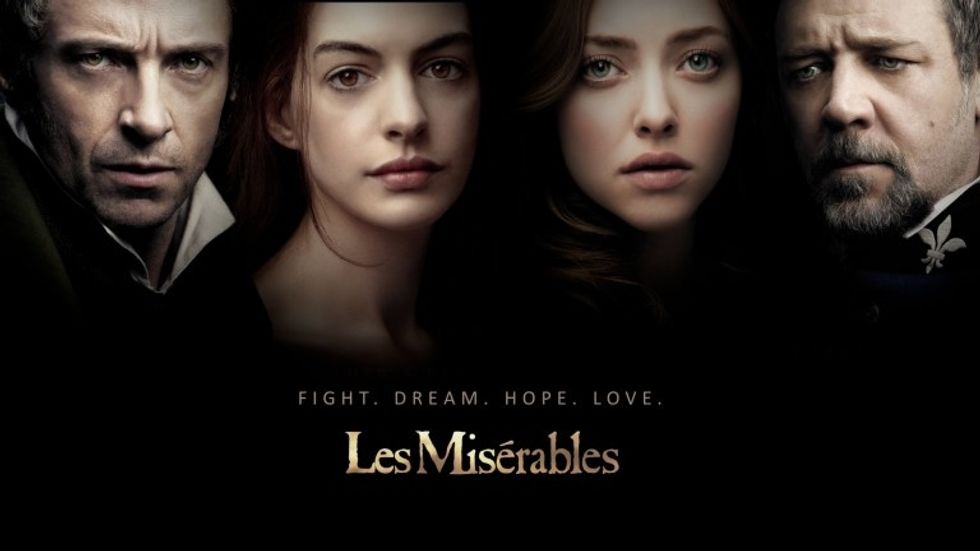Ever since I was little, I've loved musicals. I used to think that the only way to see them was either wait to see what musical my high school was putting on, or buy expensive tickets to see a show in Boston or New York. In recent years they have become more accessible to people who maybe can't afford a Broadway ticket.
The most popular one being musicals made into movies, examples being "Les Miserables," "The Sound of Music" and "Into the Woods." Another, more recent adaptations, are the live performances that are broadcasted live on national tv, like "Jesus Christ Super Star" live.
Whenever an adaptation of a musical is announced, there's a mix of excitement met with an outcry from fans who are afraid the adaptation will "ruin" the musical, that there's no way a movie can capture the brilliance of the stage production. And they're completely right to point out it won't be the same.
The reason for that isn't because Hollywood doesn't get musicals and they're purposely trying to ruin something you love. It's because films are a completely different medium to a live stage production. On stage, an actor has to project to a large audience, so their gestures are often grand and exaggerated so they're performing to the back of the auditorium. In film, the camera is right there so it's a much more intimate performance the actor needs to give. Movies also have a more limited time frame to work with. Musicals can last about three hours with a 15-minute intermission.
Films, however, have about a two and a half hour time limit at the most before audiences start to check out. So it makes sense that in a movie adaptation, certain scenes or songs from the musical could be condensed or cut.
And none of this hurts the musical theatre industry, if anything it helps. Mainstream exposure to any musical makes people more aware of shows. The 2012 "Les Miserables" film was my first exposure to the show, and now it's one of my all time favorite shows. The movie was also smart by casting big name actors like Anne Hathaway and Hugh Jackman since they have fans who will want to see whatever they're in.
Most of the mainstream actors could carry a tune (except for you Russell) and sounded good, even if they might not be able to deliver a powerful belt to the back of a stadium. The film also made sure to cast some seasoned Broadway and West End performers, such as Samantha Barks as Eponine, who has played the role in both the West End and for the 25th anniversary concert. Having both stage and screen stars will draw in a more wide audience.
Having the live musicals on networks like NBC also helps with exposure. Just like the Les Miserables film if they have a mix of Broadway and mainstream stars they can attract a wider audience. Unlike the movies, they don't have to cut songs because the live musicals cut to commercial breaks. The live musicals help give people a chance to see a show if they perhaps can't afford a trip to New York. Even if there's a chance they could miss the show, they can always record it on their DVR.
More exposure to musical theatre means more people could grow to love it and want to see more shows, which is good for the business. More schools and community theaters can get more support as a result, meaning more cheaper local shows for everyone to enjoy. And as a result, everyone is happy. Even if you don't like a certain adaptation, just ignore it and let everyone else be happy, it's how I cope with the existence of "Love Never Dies."





















